N.E. Sudheer: Does theCOVID-19 pandemic expose an absence of global leadership? Many say America with Trump as President can't play its traditional role as the world leader. If so, what does this mean for the future of the world? Do you see any change in the world order? Also, tell me about the opportunity of China in the postCOVIDworld.
Shashi Tharoor: I do worry that in the post-COVID world, the increasing move towards populism, isolationism and the economic and cultural backlash against globalization, which we saw even prior to the arrival of the virus, is only going to accelerate. There is also the vacuum created by America’s abdication of its traditional leadership role in the global theatre, under President Trump, and this has arguably served as a catalyst to further propel these geopolitical movements. In fact, I think that we may well see a process of ‘deglobalisation’ characterised by trade restrictions, the repatriation of production and supply chains, and the hollowing out of international and multilateral institutions.
They find a considerable dilution of support for democracy and a growing impatience with the democratic process, especially among the so-called ‘millennial’ generation, even in former ‘consolidated democracies’ around the globe.
This is a trend that preceded, but has been intensified by, the current pandemic. In a widely discussed paper before Covid, Harvard scholars Yascha Mounk and Roberto Stefan Foa argued that the health of liberal democracies across the world is failing (the term of art being ‘democratic deconsolidation’). They find a considerable dilution of support for democracy and a growing impatience with the democratic process, especially among the so-called ‘millennial’ generation, even in former ‘consolidated democracies’ around the globe.
Sudheer: The world has failed to stop the pandemic. So far, it lost almost 7 lakh human beings. Currently, there are 15 million confirmed cases globally. What went wrong? Do you think we failed to learn much from the past epidemics? Who failed us? Is it science or politics?
Tharoor: I don’t want to make a generalization by calling the global response a complete failure. Obviously there have been some positive aspects amid all the gloom—for instance the manner in which certain countries like New Zealand, Vietnam, South Korea and to a certain extent, Japan and Singapore, have worked effectively to address the transmission of the virus, has been commended across the world; similarly the manner in which healthcare workers around the globe have responded to the virus has been, despite the challenging odds, exceptional—and I also do acknowledge that when this happened there was no rulebook or established protocols on exactly how to combat the virus. We were still learning about it, the manner in which it spread and so on and naturally it took some time for our systems to respond to it in a competent manner.
That being said, of course, we do know there was an information asymmetry during the earlier stages. Had countries had all the information about the potential impact of the virus in advance and accordingly institutionalized lockdowns at an earlier stage, perhaps we could have significantly reduced the number of cases globally. Similarly, the manner in which some countries have ‘unlocked’, including India, has also been troubling.
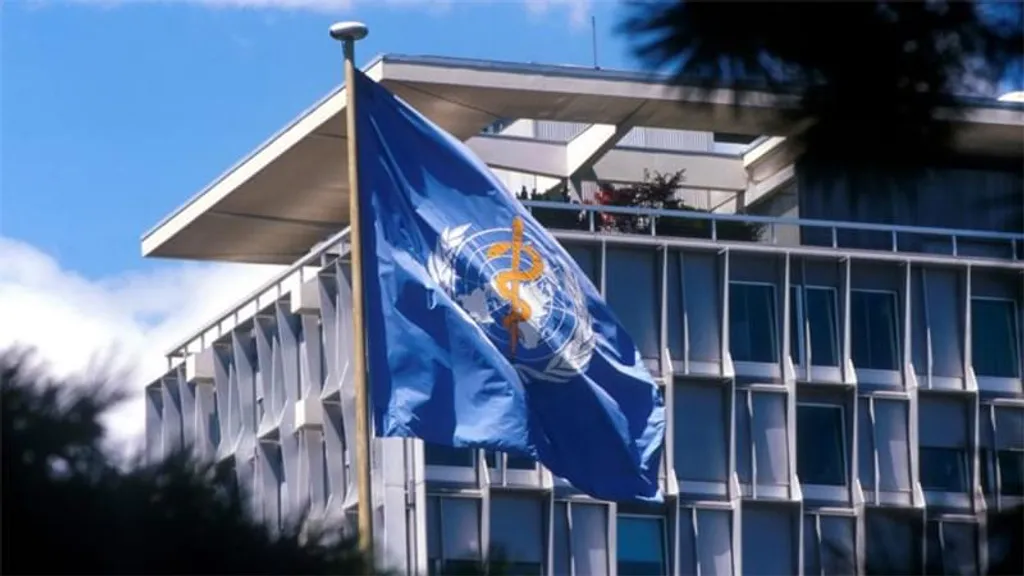
And then there are other more systemic problems that may have hampered our response to the virus—for instance the constant under-funding of research institutes across the world (look at the situation being faced by Sree Chitra Thirunal Institute of Medical Science and Technology in Trivandrum, which despite being a premier institute of medical innovation and research has been constantly struggling for adequate funding), the hollowing out of international institutions that could have promoted global cooperation and information sharing like the WHO, the increasing emphasis on isolationism and self-reliance instead of strengthening of relationships that could have promoted knowledge and resource sharing. We must recognize that deep-rooted factors such as this have had a debilitating impact on our campaign to address the transmission of the virus.
Sudheer: WHO is struggling to manage the COVID crisis. They are also facing a challenge from the US. The US has stopped its funding. Your earlier experiences at UN as Under-Secretary-General would have given you a direct perspective on the world at large. How do you assess the present situation? Do you think WHO could have managed this crisis differently?
Tharoor: My time at the UN confirmed to me the critical importance of international cooperation. We may have learned some lessons from past epidemics, but I do not think we have learned this crucial lesson – that cooperation between countries is absolutely essential to respond to global emergencies like this. International institutions like the WHO have not been given enough power and autonomy to take meaningful actions, and countries seem to be hiding information from each other rather than helping the free flow of data make the world a safer place. I am a committed internationalist, and I believe that the only way we can deal with this and future pandemics is by encouraging countries to help each other, and to strengthen the institutions that deal with such issues. Without such an approach, competing powers will only help make the world a more dangerous place.
I am a committed internationalist, and I believe that the only way we can deal with this and future pandemics is by encouraging countries to help each other, and to strengthen the institutions that deal with such issues.
On the manner the WHO responded to this crisis, I agree that there were some shortcomings in their approach and one could certainly argue that they were slow to act at the outset of the crisis – quite obviously because WHO was afraid of upsetting China, which is a powerful member of the organization. However, I cannot lay the blame directly at the feet of the WHO. As an international organization, it is only able to act as its member states, especially the most powerful, wish it to act. It is in the nature of international institutions that they are mostly beholden to the interests of their member states – this is built-in to the “system design” of international organizations (look at the US in the UN Security Council!).
In the aftermath of this crisis, we will certainly have to examine how best to strengthen the autonomy and operation of such organizations, to free them from the distorting influence of powerful member states. I have suggested, for example, that as a price of membership, member states voluntary forego their sovereign right to deny visas to WHO inspectors, as China did earlier this year. Similarly Executive Heads of these agencies could be given single non-renewable terms so they are not constantly thinking about how not to offend powerful member states who could block their re-election.
Sudheer: At the home front, how do you look at the Indian scenario? Where are we heading now? How do you assess the Narendra Modi government's handling of the COVID crisis in India?
Tharoor: The report card of the Modi government during the current pandemic has been characterised by an abject lack of preparedness and a deficit of ideas and policy measures to mitigate the impact of the pandemic on Indian society. Take the issue of our migrant workers-- I think the government’s short-sightedness and, in some cases, deliberate indifference to the welfare of our migrant workers was appalling. Even the one thing that most people agree that the Centre got right, which was to declare a lockdown at a relatively early stage, was also undermined by the way they did it -- their complete mismanagement in treating our migrant workers, which resulted in an unprecedented scramble to return to their homes, amid panic, chaos and tragedy. Some 200 migrant workers have died on their way home, run over by trucks or trains, or of sheer exhaustion.
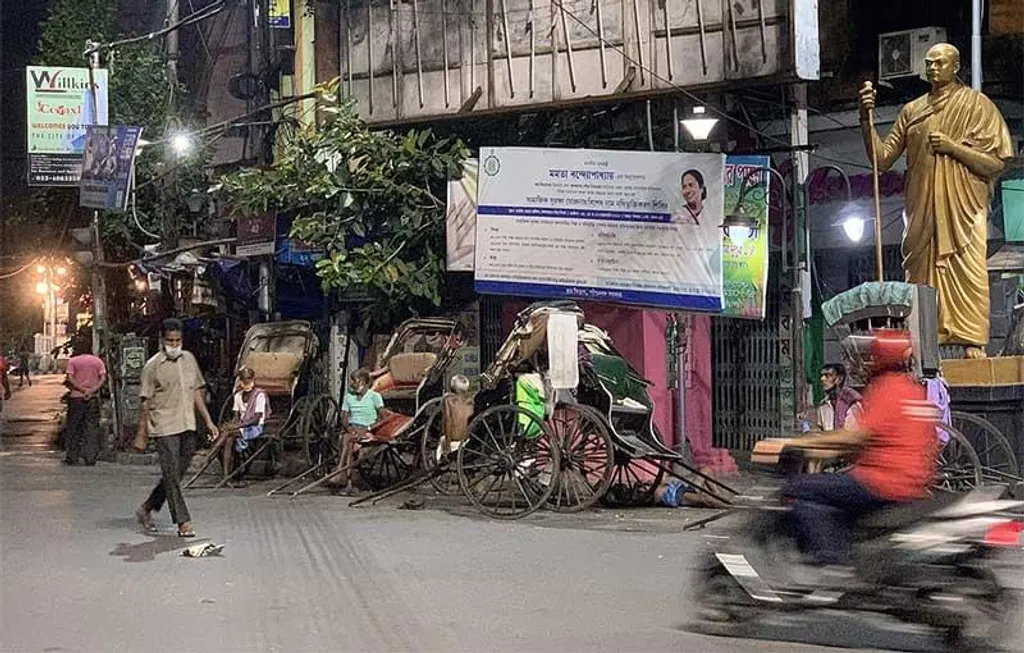
What could they have done to prevent this from taking place? To start with, the government could have offered more notice for a national lockdown, before shutting down the trains and highways, which could have allowed these workers to either return to their respective states or make necessary arrangements in the areas they were at the time residing in. Since they did not, the Centre could have worked with the states to not just issue clear guidelines for inter-district and inter-state transportation of migrants but could have run dedicated transport corridors to bring those who wished to return back. We all know the unnecessary miscommunication and drama that took place when special trains were finally operationalized for these groups and yet there was no clarity on who would be paying for their tickets.
Finally, there are a number of other concrete measures that the government could have undertaken to ensure that adequate resources and support were provided to these groups. My own party has repeatedly urged the government to take up many of these—from ensuring access to food through the PDS system, to transferring Rs 10,000 to each individual using the existing Jan Dhan bank accounts, reversing the decision to suspend many of our labour laws, and so on. If these steps had been followed and if some of these policy measures been rolled out in advance by the government, I am confident that much of the present crisis could have been averted and we would not have had to see the kind of hardships and loss of lives that have taken place.
As a result of their ineptitude, the economy is in the doldrums, which has forced the government to lift the lockdown at a time when we are witnessing over 40,000 new cases each day. As a result, we are now confronted with the twin challenges
The manner in which we have ‘unlocked’ is also seriously questionable. This government has, as Rajiv Bajaj pointed out, succeeded in flattening the wrong curve. As a result of their ineptitude, the economy is in the doldrums, which has forced the government to lift the lockdown at a time when we are witnessing over 40,000 new cases each day. As a result, we are now confronted with the twin challenges of a stagnating economy and a health crisis that is in many ways exceeding the capacity of our existing infrastructure.
Sudheer: Initially, you were happy with the Pinarayi Vijayan government's handling of the crisis in our state. Your party is now very critical of the state government. But, in reality, isn't Kerala doing better than most of the other states in India? Do you think we could have been in a better position now?
Tharoor: I do think our initial effort in tackling the transmission of the virus in the state certainly had positive results and there was merit in the ‘Kerala model’ that was, at that time, hailed across the world.
The KEAM exams alone forced over 1.2 lakh students to leave their homes and give these examinations – with, inevitably, an alarming number of cases that have been traced directly to exam takers.
But that was not just the doing of the state government—the model in fact can be traced to a historic emphasis on socio-economic development and welfare in the state, including on healthcare, by successive governments and community groups, as well as the benefits of having a highly literate and politically conscious society that came together in a united manner to wage a successful campaign against the virus during the initial months.
But the hard-fought gains are now at the risk of being undone and cases are rising
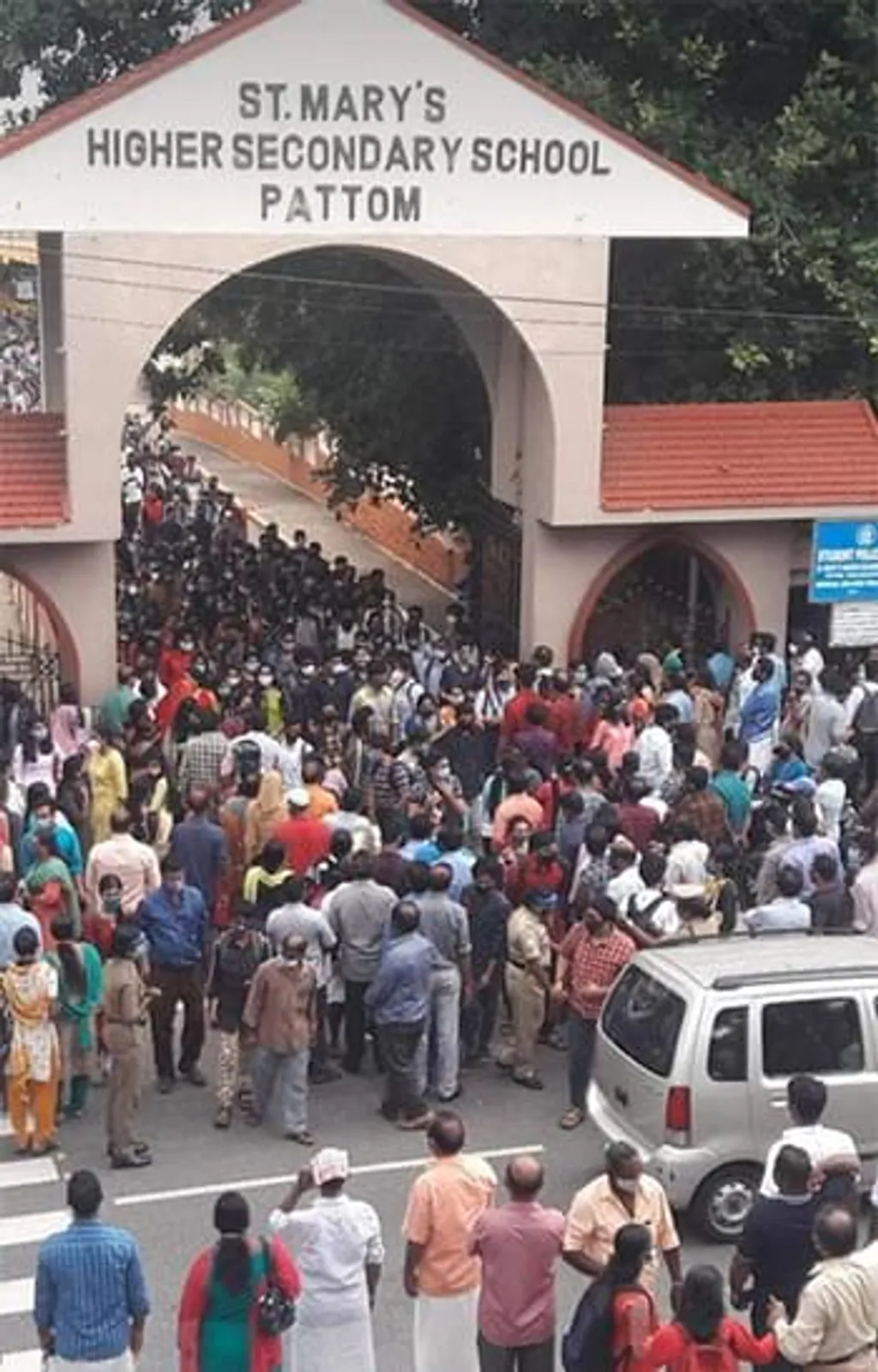
across the state. The state government certainly needs to take its share of responsibility for this. It has made seriously questionable decisions such as the one to go ahead and administer examinations, against the advice of political leaders like myself. The KEAM exams alone forced over 1.2 lakh students to leave their homes and give these examinations – with, inevitably, an alarming number of cases that have been traced directly to exam takers. Decisions like this and others (such as not sufficiently increasing Covid-testing, including by looping in private sector healthcare providers) have undermined the gains we have made. And the government’s management of the lockdown has been unnecessarily heavy-handed.
Sudheer : You showed us how a committed public servant should work at the time of an unprecedented crisis of this magnitude. Responsible politics is a rare activity in India. Are you happy with the way the opposition parties played their role in this crisis time, including your party?
Tharoor: I certainly believe opposition parties, both in our state and at the Centre, led by the Indian National Congress, have played a constructive and energized role during the pandemic. We have been successful in pushing the state and central government to take a number of proactive efforts to curb the transmission of the virus as well as offer relief to economic groups that have been suffering significantly as a result of the lull in economic activity. The pandemic has increasingly convinced all of us on the importance of working together. It is not realistic to expect the government alone, or the local district administration and civil society, to bear the burden of relief and containment efforts. We are also talking about an issue that directly affects the health of our communities and on a scale that we have not encountered in recent memory. Therefore, I strongly believe that the circumstances certainly require us to suspend parochial politics and embrace the need to find solutions in a bipartisan spirit. By working together, we can certainly achieve more for the people.
I strongly believe that the circumstances certainly require us to suspend parochial politics and embrace the need to find solutions in a bipartisan spirit. By working together, we can certainly achieve more for the people.
At the same time, I believe we have been successful in holding the government accountable for its actions, which is something that I would argue is even far more critical during a time of crisis such as the one we are currently facing.
Tharoor: The lockdown has been an immensely busy period personally but in a different way from the era of travel and meetings. Under lockdown each day has been different -- but to generalize and summarise, 6-8 hours are spent on various COVID-related interventions such as helping our citizens stranded abroad or engaging with Ministries to highlight issues and cases requiring attention and response; 2-3 hours is spent on a webinar or two each day, where I have addressed audiences on a variety of issues; and the volume of emails, letters and messages has stayed high and unabated!
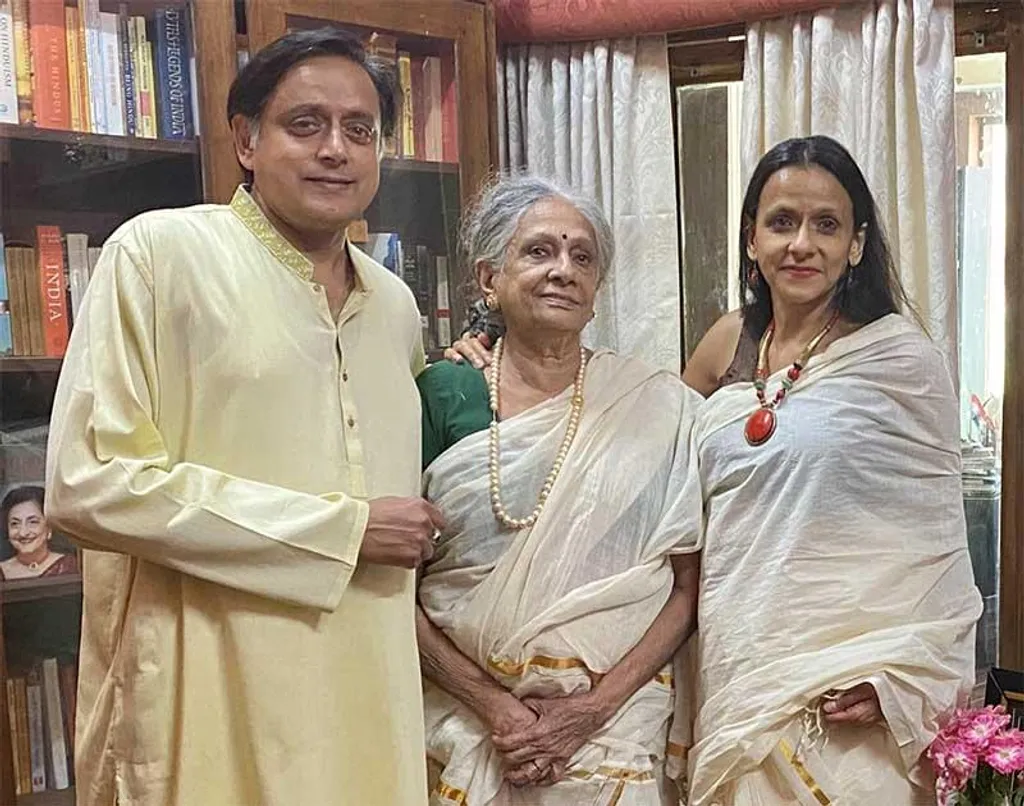
But I have also managed a daily couple of hours in the gym at home; and as much time as I could find writing. I should have two books out in the last quarter of the year –"Tharoorosaurus' (Penguin), a light-hearted collection of quirky essays about unusual words, in September, and "The Battle of Belonging' (Aleph), a more substantial work that is my magnum opus on Nationalism, both global and specifically Indian, in November. A bonus is the time I’ve been able to spend with my mother and, till recently, my London-based sister (who has now returned to the UK), who were here when the pandemic erupted and who have been locked down with me.
Sudheer: How do you see the future of the Indian National Congress in a post-COVID India?
Tharoor : I genuinely and passionately believe that what the Congress stands for and offers the nation is fundamentally indispensable to the future of the country.
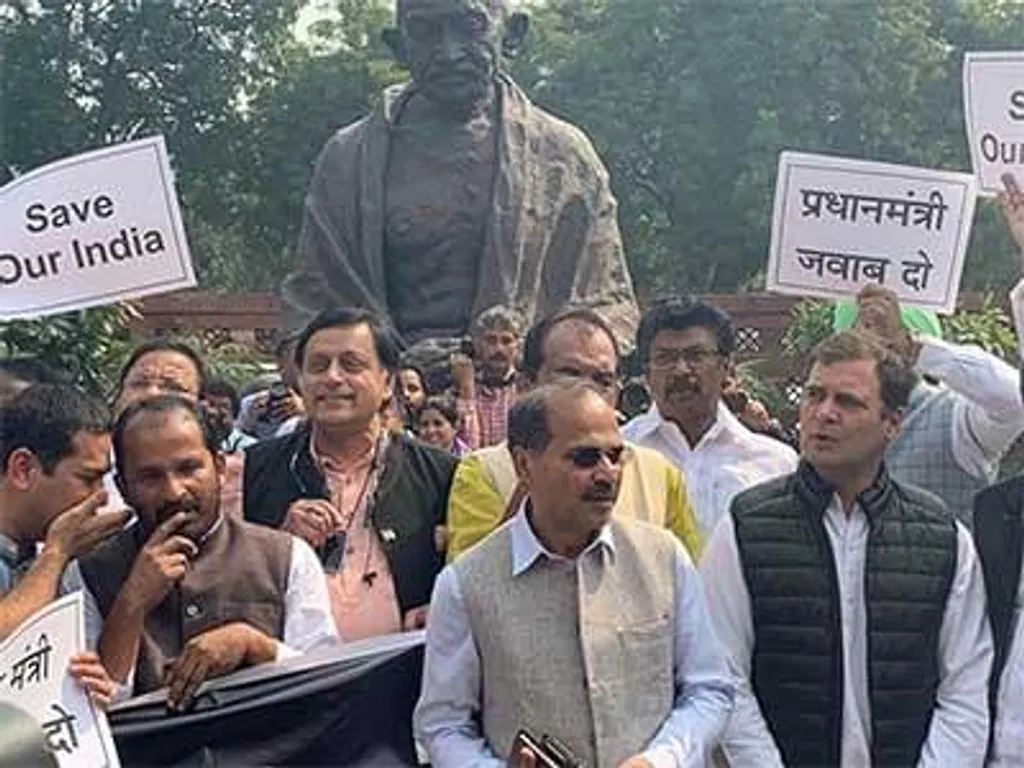
We represent an alternate vision of the Idea of India, an inclusive and pluralist vision that reflects truly the heart and soul of the country. The ideology of an inclusive and progressive party, liberal and centrist in its orientation, committed to social justice and individual freedoms, patriotic in its determination to protect national security and promote human security, still has great appeal if it is projected properly. We have been able to sell this message well in Kerala, Punjab, Chhattisgarh and elsewhere but we must not leave the national field uncontested for the BJP’s distorted, bigoted and narrow-minded version of what India stands for.
The ideology of an inclusive and progressive party, liberal and centrist in its orientation, committed to social justice and individual freedoms, patriotic in its determination to protect national security and promote human security, still has great appeal if it is projected properly.
Though the party has faced difficult times before and has some challenges to address today, I take great confidence in the fact that the party has bounced back many times before and, with the proper focus, it can do so again -- because India needs a credible national alternative and only the Congress can provide it.
Interview മലയാളം പരിഭാഷ - കോവിഡ് കേസുകൾ കൂടിയതിൽ സംസ്ഥാന സർക്കാറിന് ഉത്തരവാദിത്തമുണ്ട്

